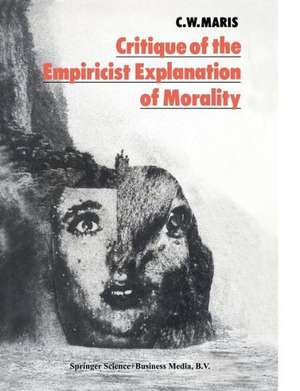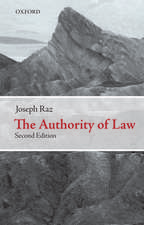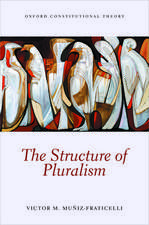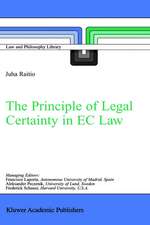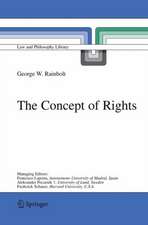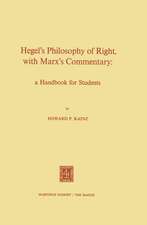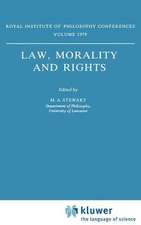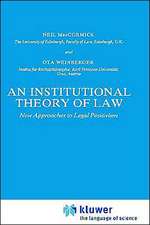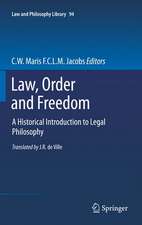Critique of the Empiricist Explanation of Morality: Is there a Natural Equivalent of Categorical Morality?
Autor C. W. Marisen Limba Engleză Paperback – 23 aug 2014
Preț: 407.56 lei
Nou
Puncte Express: 611
Preț estimativ în valută:
77.100€ • 81.13$ • 64.39£
77.100€ • 81.13$ • 64.39£
Carte tipărită la comandă
Livrare economică 15-29 aprilie
Preluare comenzi: 021 569.72.76
Specificații
ISBN-13: 9789401744324
ISBN-10: 9401744327
Pagini: 496
Ilustrații: XX, 475 p.
Dimensiuni: 170 x 244 x 26 mm
Greutate: 0.88 kg
Ediția:1981
Editura: SPRINGER NETHERLANDS
Colecția Springer
Locul publicării:Dordrecht, Netherlands
ISBN-10: 9401744327
Pagini: 496
Ilustrații: XX, 475 p.
Dimensiuni: 170 x 244 x 26 mm
Greutate: 0.88 kg
Ediția:1981
Editura: SPRINGER NETHERLANDS
Colecția Springer
Locul publicării:Dordrecht, Netherlands
Public țintă
ResearchCuprins
I: A topography of the empiricist theories of law.- II: Hobbes’s empiricist theory of morality.- III: The empiricist theories of David Hume and Adam Smith.- IV: Comte and positivism.- V: Herbert Spencer and evolutionism.- VI: Guyau’s philosophy of life.- VII: Durkheim’s sociological ethics.- VIII: Stevenson’s and Hare’s analysis of language.- IX: Scandinavian realism.- X: Scepticism or empiricism?.- XI: The problem of the empiricist explanation of normativity: is there a natural equivalent of ‘duty’?.- XII: The empiricist justification of the claims of morality.- XIII: The hierarchy argument as a justification of morality.- XIV: The congruency argument.- XV: The moral game.- XVI: Conclusion.- Index of Names.
